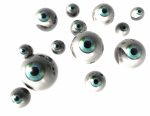You may have read my article about the Fire Engine exercise, but did you know that I require my students to give me three observations about what happened when they did that exercise each an every time they do a repetition? Yes, it’s true.
“Seriously? Isn’t that overkill?” you might wonder.
It’s not overkill and, yes, I’m serious. Here are three reasons why you need to PAY ATTENTION to everything you do vocally, how you do it, why you’re doing it, and what happened after you did it when you practice vocally:
1.) You’ll develop the lifelong best practice of becoming a student of yourself.
No one pays as much attention to you as you do. But paying attention to your vocal warmup, workout, and performance habits and practices, it’s not about being narcissistic. It’s to train to become your own #1 Best Student of Yourself and #1 Best Teacher of Yourself, when you engage with a few guidelines:
- Be as specific as possible:
- Good example: “About the middle of the lower portion of my range, while I was going up, it got shaky, and a little broken. It seemed like I skipped whole notes or sections of the range as I went.”
- It’s okay to say something like, “I didn’t go as high as I could that time,” but if you keep saying it over time, then go deeper and get more specific with your observations. Try to get into what was happening internally that you only went that high: “I was actually feeling tentative and was a little hesitant to go higher than I went.” Or, “My throat started to feel really tight as I got higher and was in the middle of the high portion of my range.” That’s helpful data to collect. Over time, ask yourself why you feel tentative and discuss that with your singing instructor to find whether there’s some mental block to going higher. You may need a breakthrough and your instructor can help you find the way through that blockage.
- Make observations, not judgments.
- The observation example for being specific is a helpful observation.
- These are judgments: “That was crap.” “I did that badly.” “It was terrible.” Etc.
Those don’t help. Neither does “I was amazing.” You want to describe with as much specificity as possible exactly what you felt, heard, and experienced. This give you data, if you will, which you collect over time.
2.) You’ll be able to figure out why you keep doing certain things that don’t or do help your vocal performance.
‘Nuf said? OK, I’ll add this: Observe, observe, observe. You’re creating a database of knowledge about yourself. Over time, you will be able to “put two and two together” as the data, which may have seemed originally like unrelated bits of information, begins to show patterns.
3.) You’ll improve faster.
Let’s say you have a clone of yourself, with whom you could practice side by side every day. You #1 (the original you) and You #2 (the clone) both practice daily with diligence. You both do your Fire Engines regularly and with fervor. You both warm up with Mahs, ni-ahs, self-massage, and all manner of warm-up goodness. And you both do a wonderful daily vocal workout after that warmup, challenging your range, agility, breath capacity, and all manner of vocal workout goodness. And you both work through a practice repertoire that expands your linguist capability, genre exposure, interpretation skills, and all manner of vocal repertoire goodness. But on one activity, You #1 and You #2 differ: after each Fire Engine repetition (one full “arch”), You #2 (the clone, remember) takes 15-30 seconds to reflect on what just happened and make observations. These observations, you notice, include things like how You #2 approached that repetition mentally and emotionally; what sensations You #2 felt at various points of the “arch”; what sounds and tone quality You #2 heard and experienced; etc. You (You #1) do not see the point and you do not engage with this kind of observing.
Guess what. You #2 will become a better singer, faster than you will.
“Wah! That’s not fair! I’m the real me!” You #1 thinks. Yet, it’s true. Why? Because that level of simple observation will help You #2 understand herself and her instrument better and allow her to excel. Effectively, You #2 becomes a student of herself in a way you’re not doing and, thus, will improve more rapidly.
Try it. You’ll like it. Follow You #2’s example and the guidelines provided in #1, above.




0 Comments